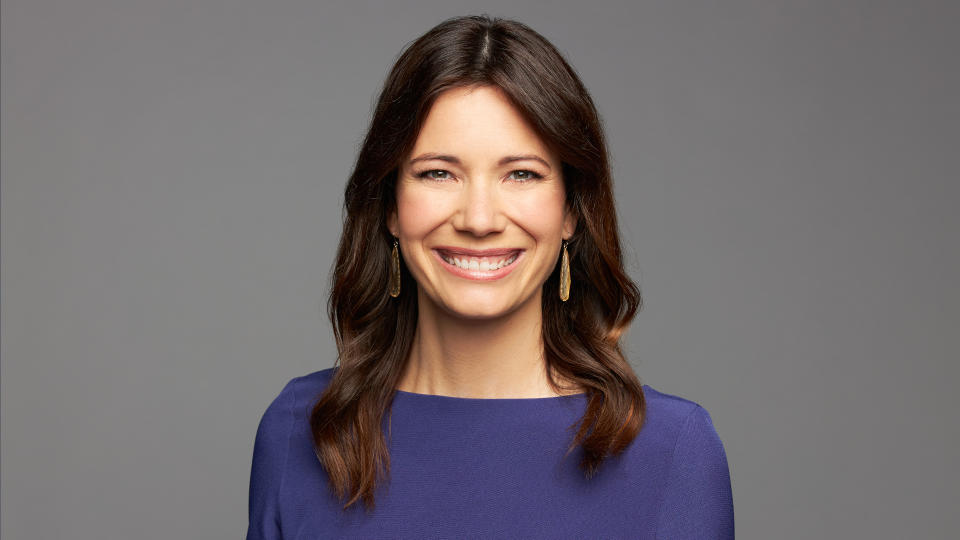Rachel Cruze: 7 Things You Should Do Every Time You Get Paid

Managing your finances is tricky. There’s so much advice out there that you may feel like you need to do a million different things to get your money in order. It’s normal to feel overwhelmed.
Find Out: How Much Does the Average Middle-Class Person Have in Savings?
Learn More: 7 Reasons You Should Consider a Financial Advisor — Even If You’re Not Wealthy
One way to get on top of your finances is to implement a routine, specifically a payday routine. Once you establish a routine, making money moves becomes a habit, and it’s much less stressful.
In a recent video on her YouTube channel, personal finance guru Rachel Cruze broke down seven steps you should take every time you get paid. Try her routine to make managing your money easier.
Wealthy people know the best money secrets. Learn how to copy them.
Enter Your Income Into Your Budget
The first thing Cruze recommended doing when you receive your paycheck is creating a budget. Her preferred budgeting method is zero-based budgeting. In this method, you allocate every dollar of your income toward specific purposes in your budget. It’s called zero-based budgeting because your total monthly income minus your budgeted expenses should be zero.
Cruze recommended the budgeting app Every Dollar to help create your budget. Start by entering all of your household income for the month, including your partner’s income, if applicable, and any extra money you make from side hustles.
Check Out: 6 Things the Middle Class Should Sell To Build Their Savings
Add Your Essential Expenses
Next, “you’re going to cover your four walls,” as Cruze calls them — food, shelter, utilities and transportation. Input your monthly costs for these four categories on the other side of your budget.
Your mortgage or rent, for example, is likely the same every month, while your transportation costs may vary depending on how much you travel. If you’re not sure exactly how much you’ll need for one of these categories, estimate the figure based on previous months.
Account for Any Debt
You should also enter your minimum monthly payments for any debt you’re carrying.
Since you have to make these payments every month to keep your accounts in good standing, minimum debt payments are essential expenses. Not making these payments on time can lead to late fees, reductions to your credit score and even legal action from your creditor.
Balance Your Budget
Once you cover your living expenses and debt payments, see how much money you have left. Whatever’s left of your income after subtracting these essential expenses is available for you to prioritize.
Pay Off Your Debt
For example, if your goal is to pay off your debt, you can allocate most of the remaining funds to debt repayment.
Cruze recommended listing your debts from the smallest to the largest balance, regardless of their interest rates.
“You want to pay off that smallest one first,” she said, while making only minimum payments on the other debts. After you pay off that first balance entirely, you work your way up to the largest debt balance, one by one. This debt repayment strategy is known as the snowball method.
Make sure every dollar of your income has a purpose in your budget. You can always adjust these numbers during the month as needed.
Build an Emergency Fund
If you’re already debt-free but don’t have a full emergency fund, Cruze recommended putting your remaining funds toward building that account. Your emergency fund is “a cushion between you and life.”
A full emergency fund contains between three and six months’ worth of living expenses. For example, if you spend $4,000 monthly on essential living expenses, your emergency fund should have between $12,000 and $24,000.
Start putting your extra money toward building up your emergency fund each month. Before you know it, you’ll have a fully stocked emergency account and peace of mind, knowing you can weather unexpected costs without going into debt.
Save for Retirement
Once you complete all of the prior steps, the last thing Cruze recommended doing with every paycheck is investing for retirement: “I always recommend people invest 15% of their income into retirement. This can be through a 401(k) or a Roth IRA, just make sure you have money there to fund your retirement.”
With Roth IRAs, your money grows tax-free, so you won’t have a tax bill upon withdrawal when you retire. Many employers offer a match on contributions to your 401(k) up to a certain percentage of your income, which will help boost your retirement savings.
However, it’s not enough to simply deposit money into these retirement accounts. To grow your retirement savings, you need to invest the money in securities like stocks, bonds and mutual funds.
More From GOBankingRates
This article originally appeared on GOBankingRates.com: Rachel Cruze: 7 Things You Should Do Every Time You Get Paid

 Yahoo Finance
Yahoo Finance 